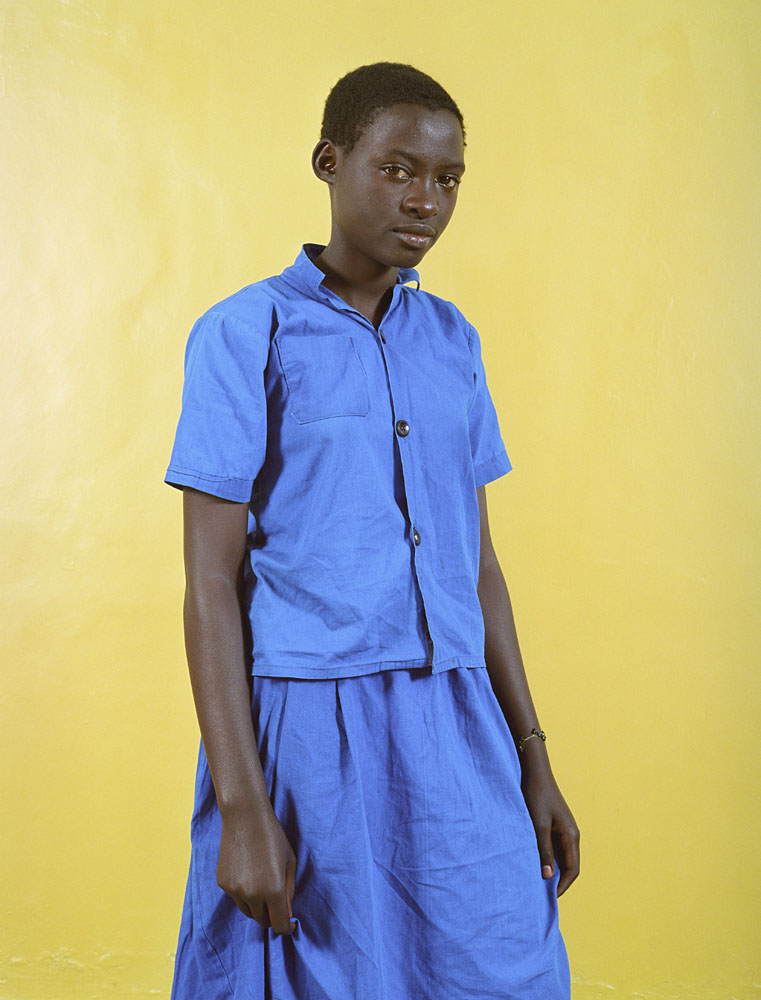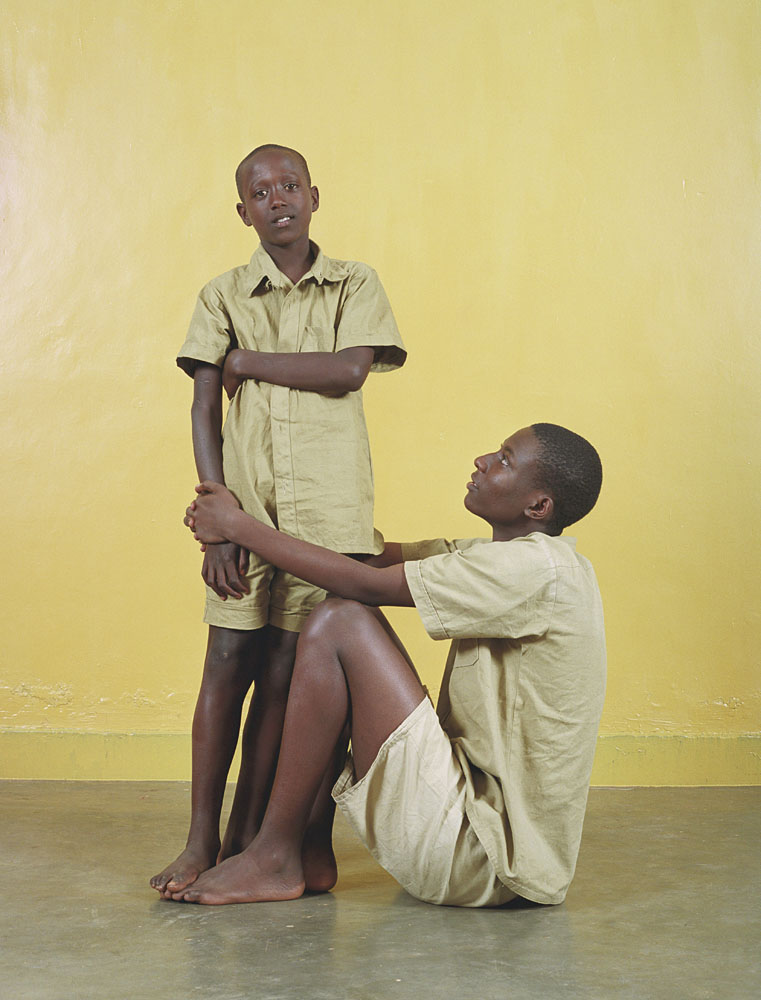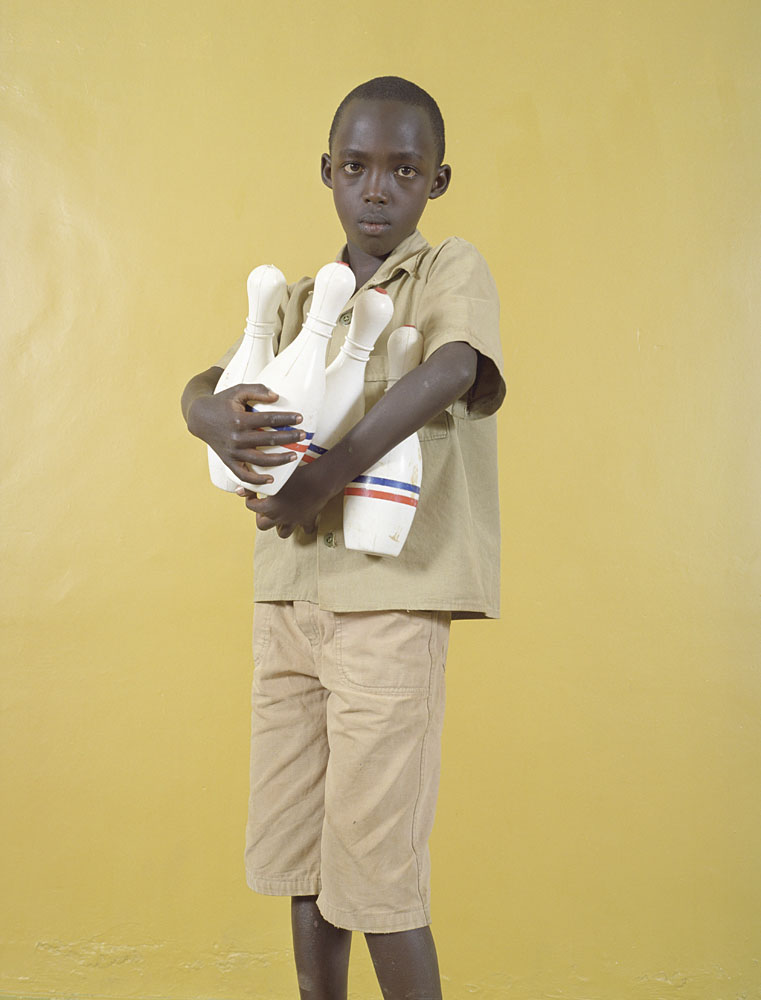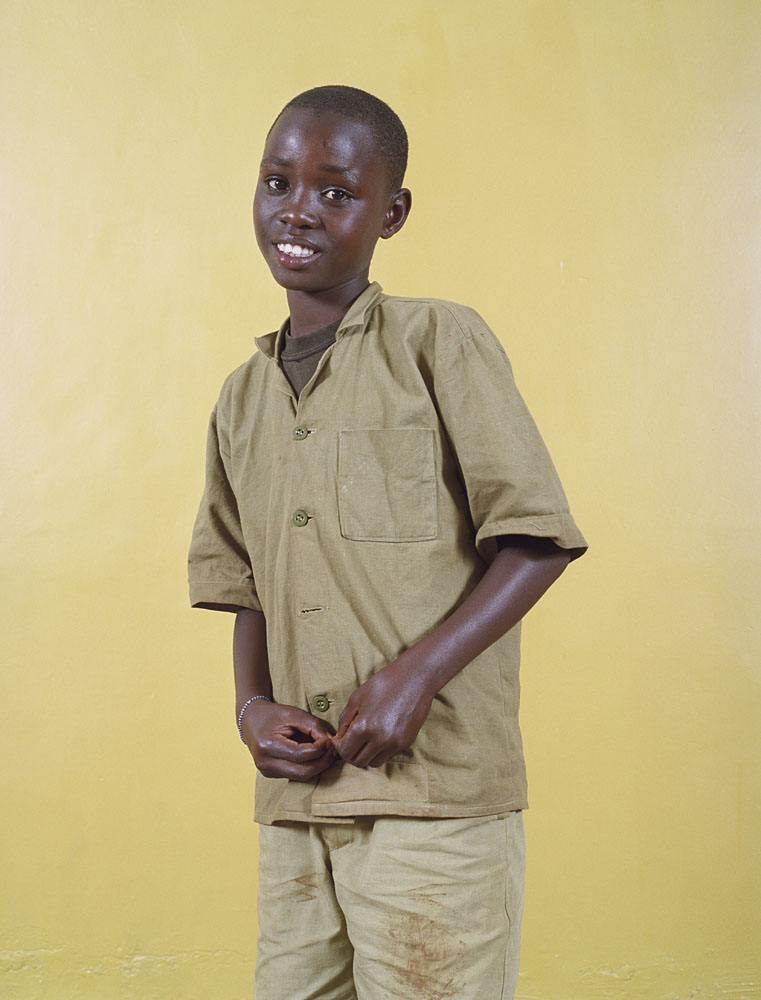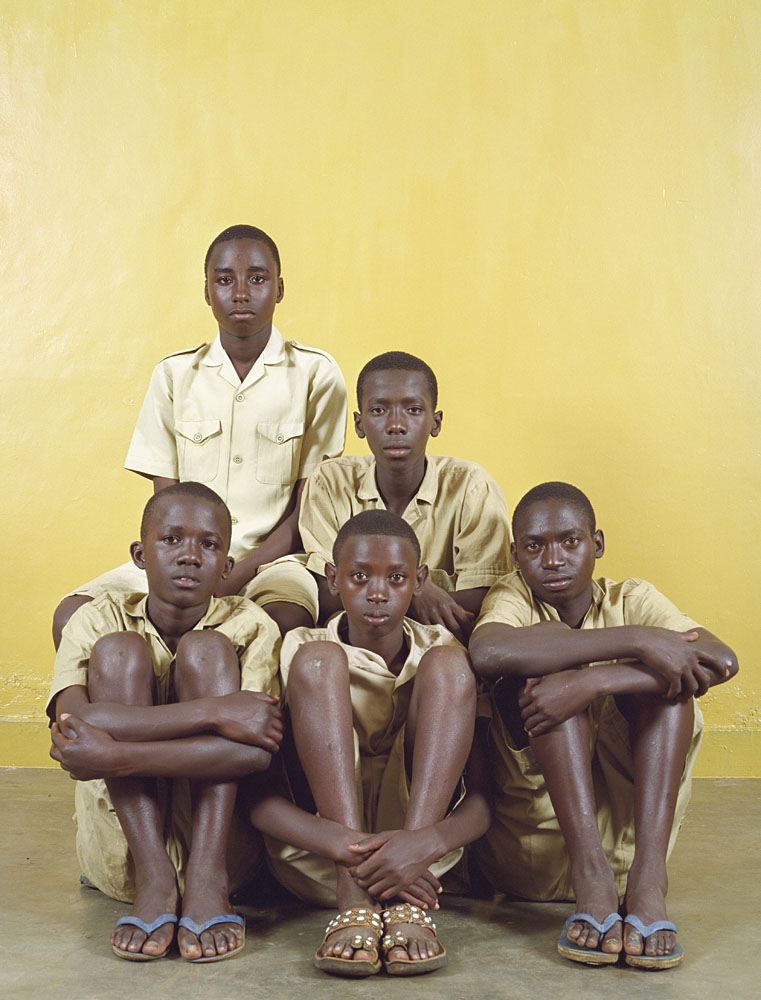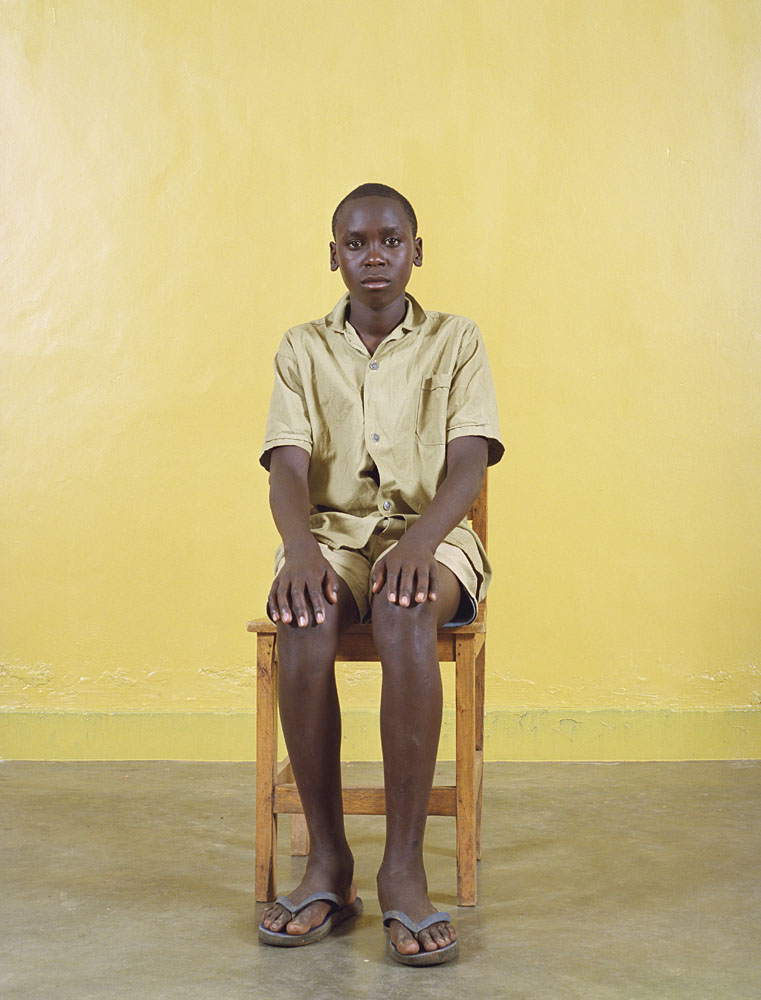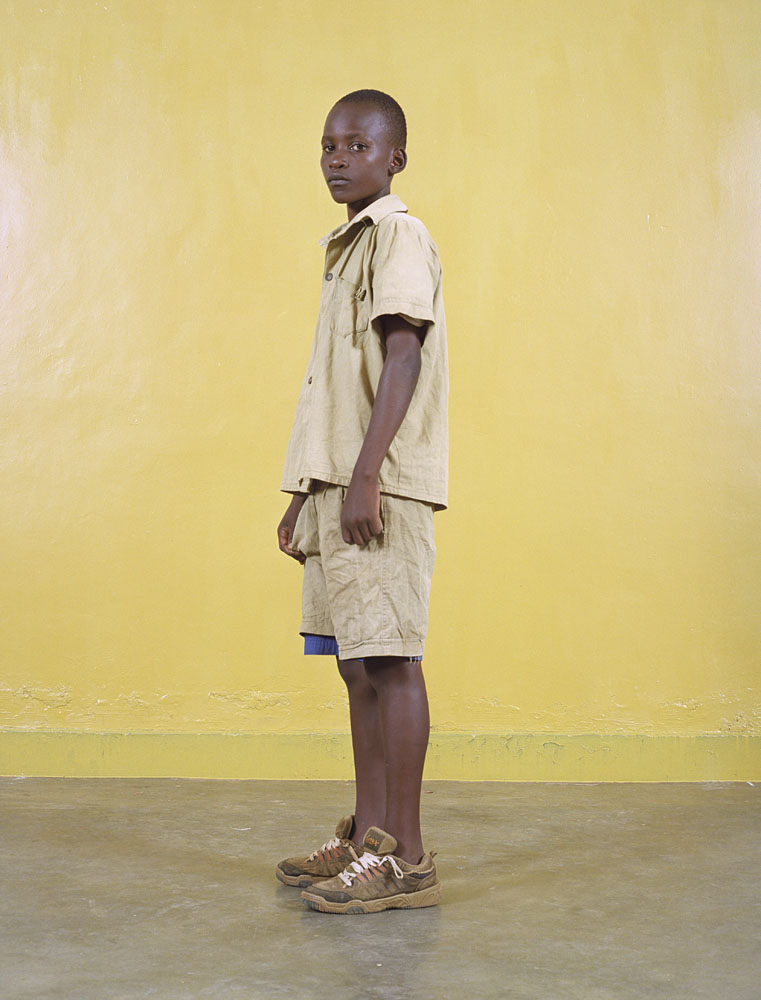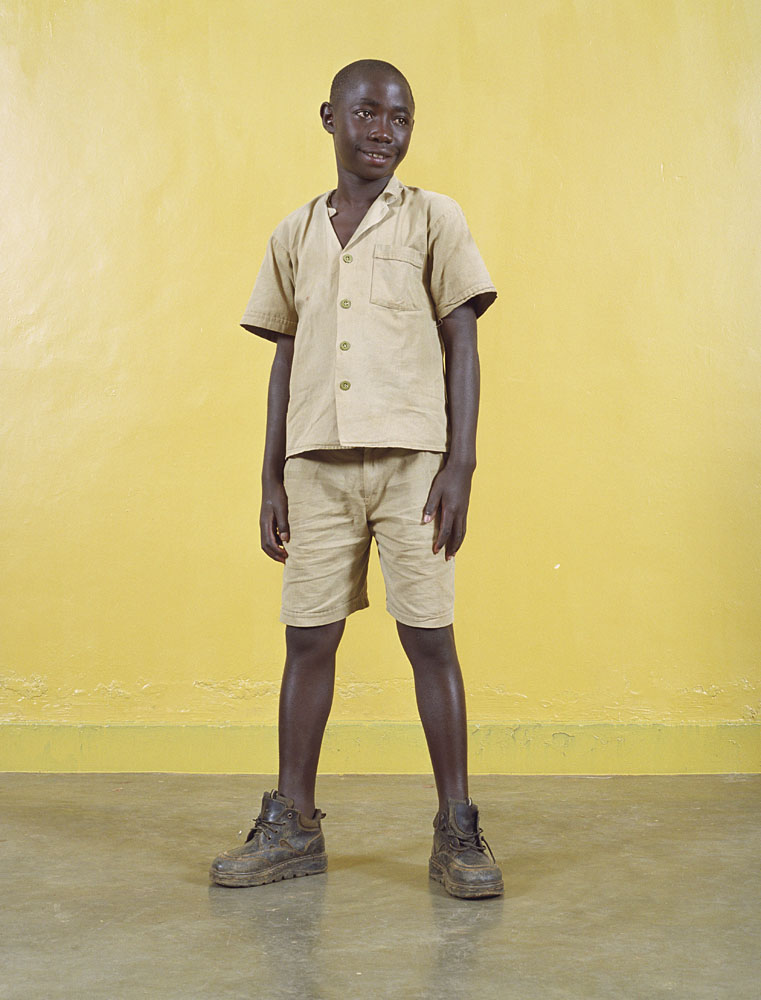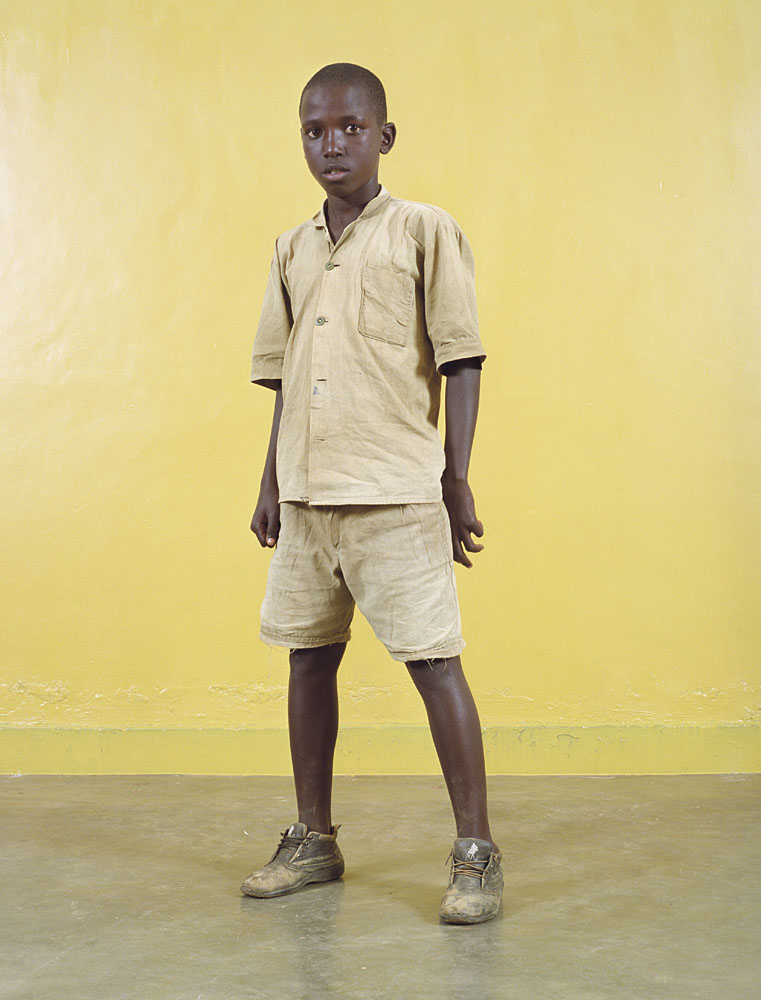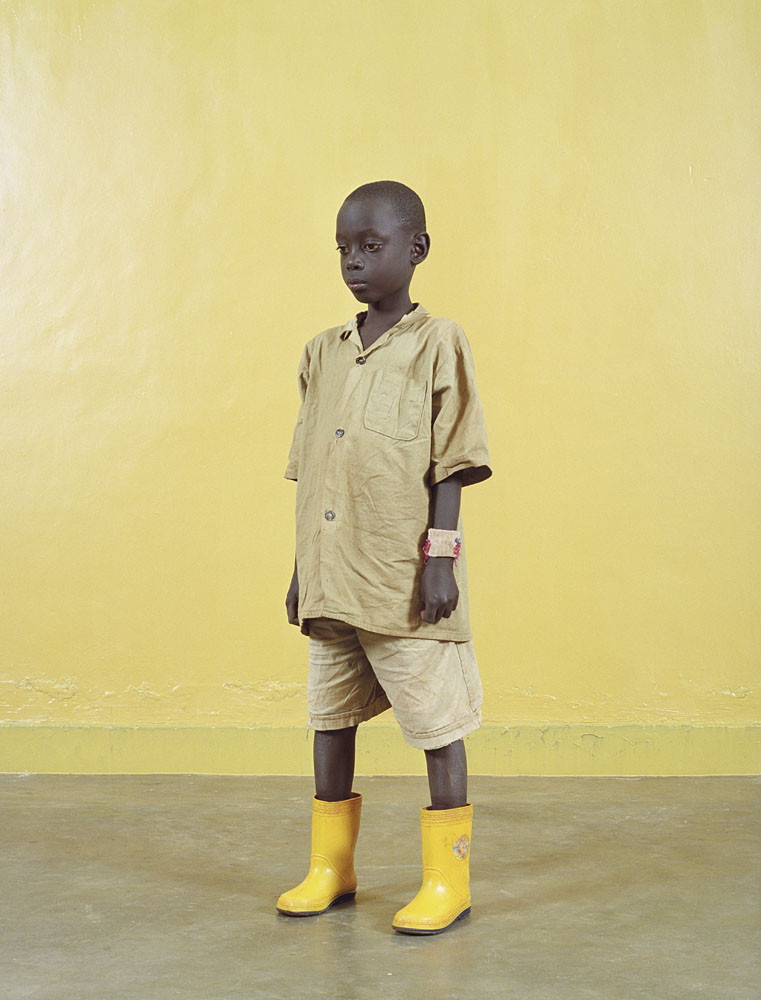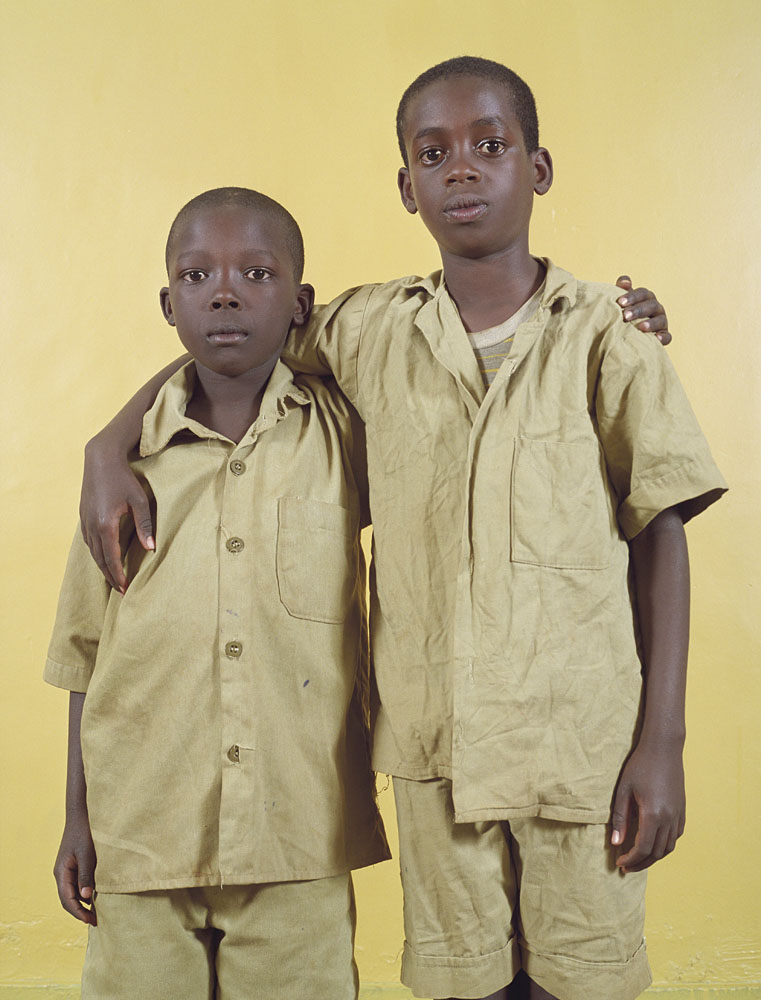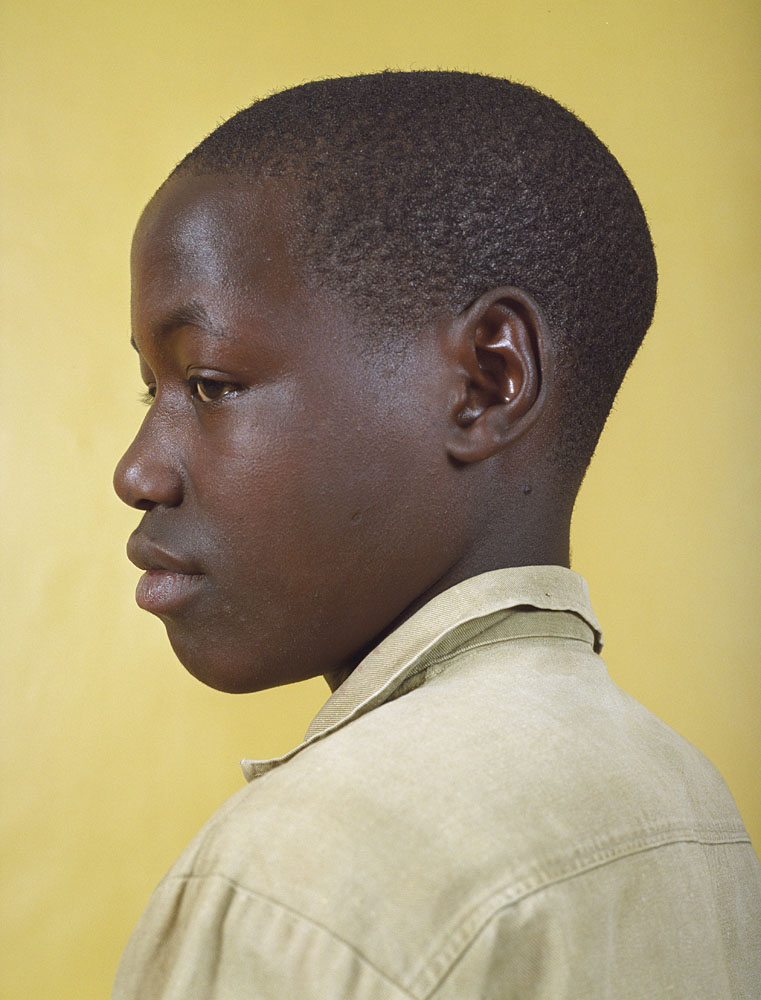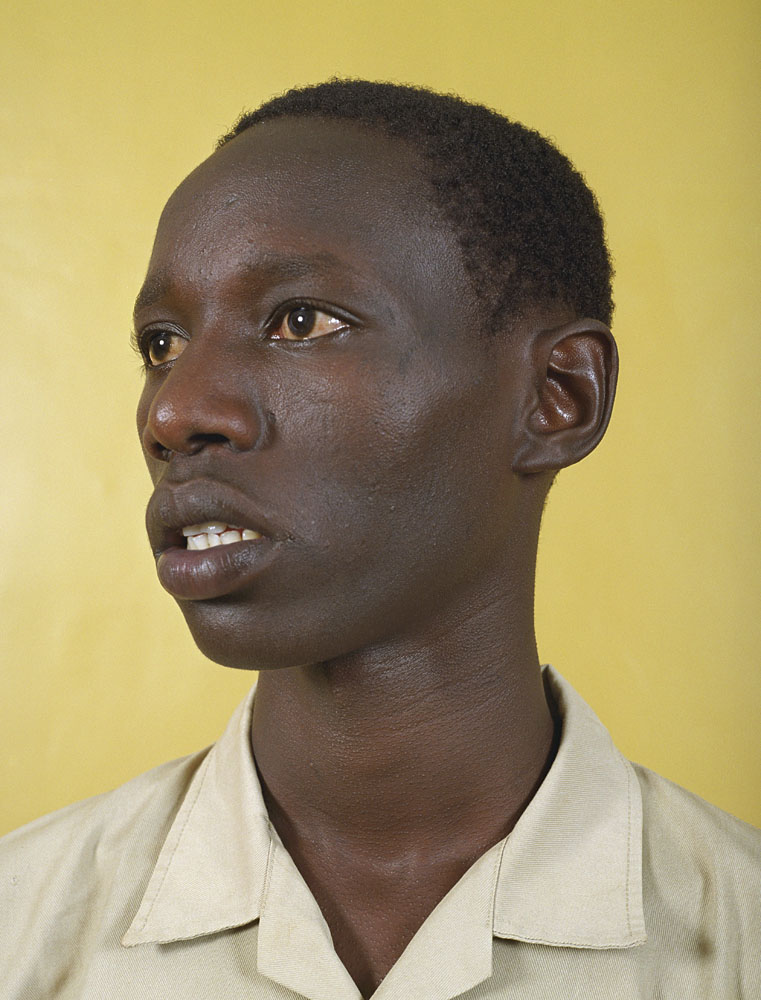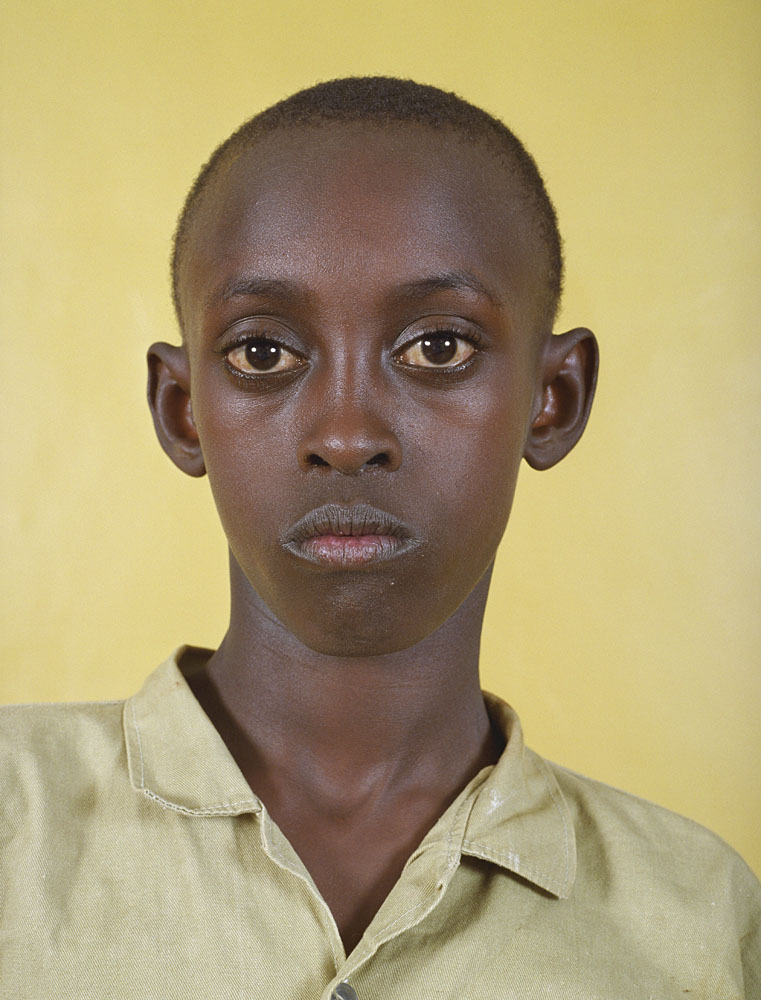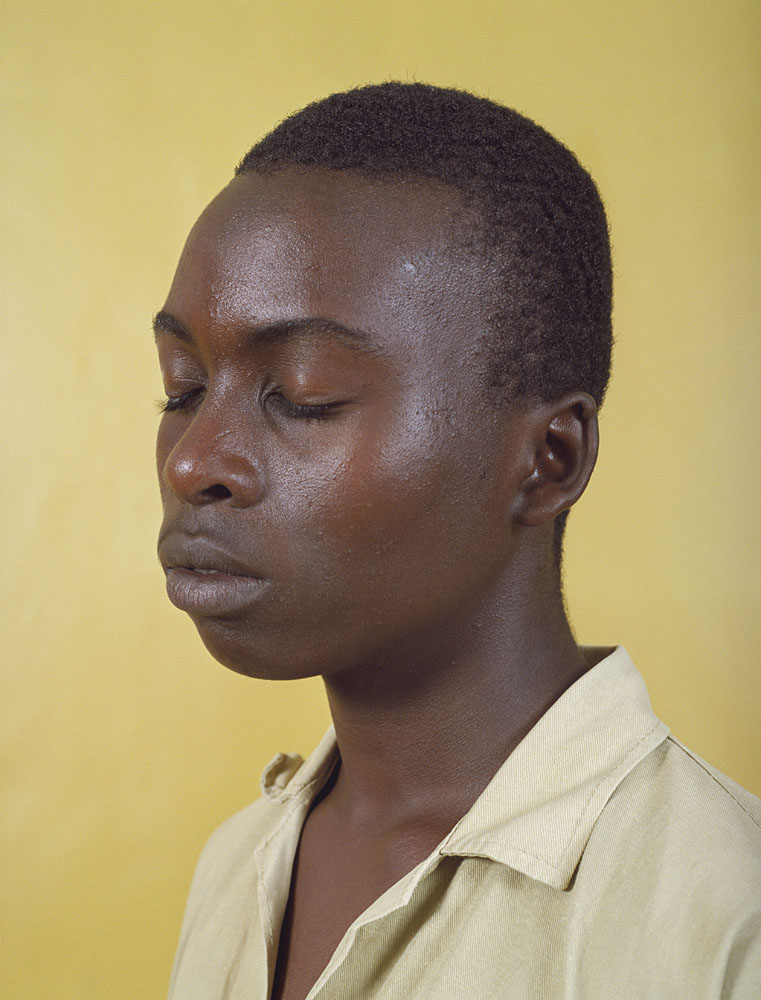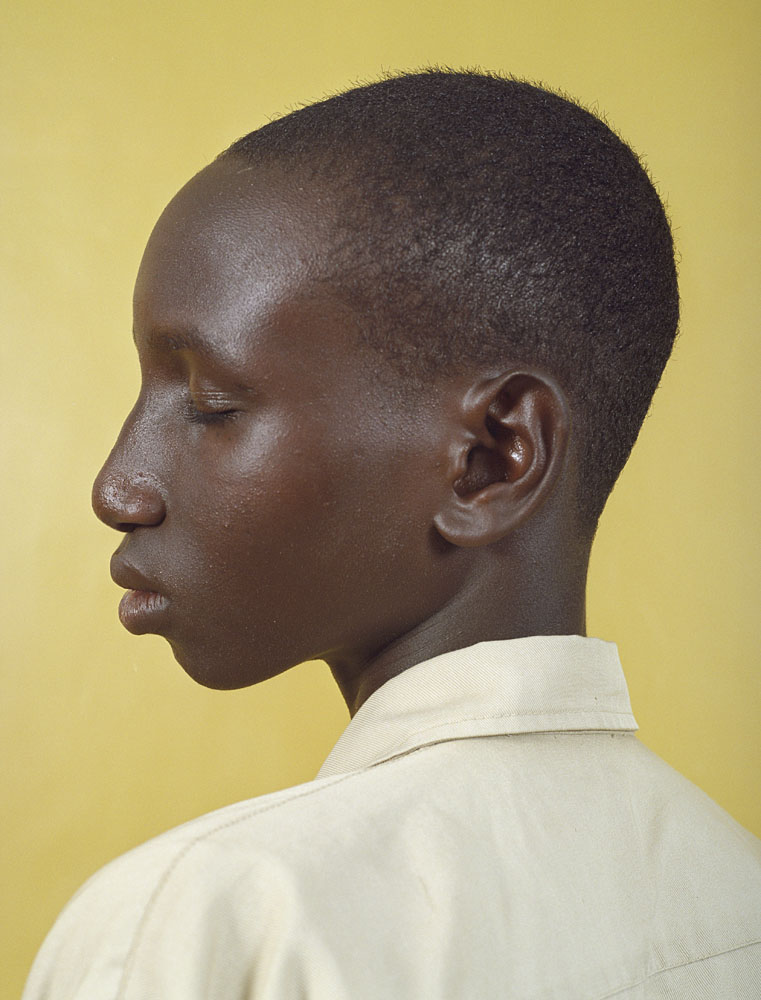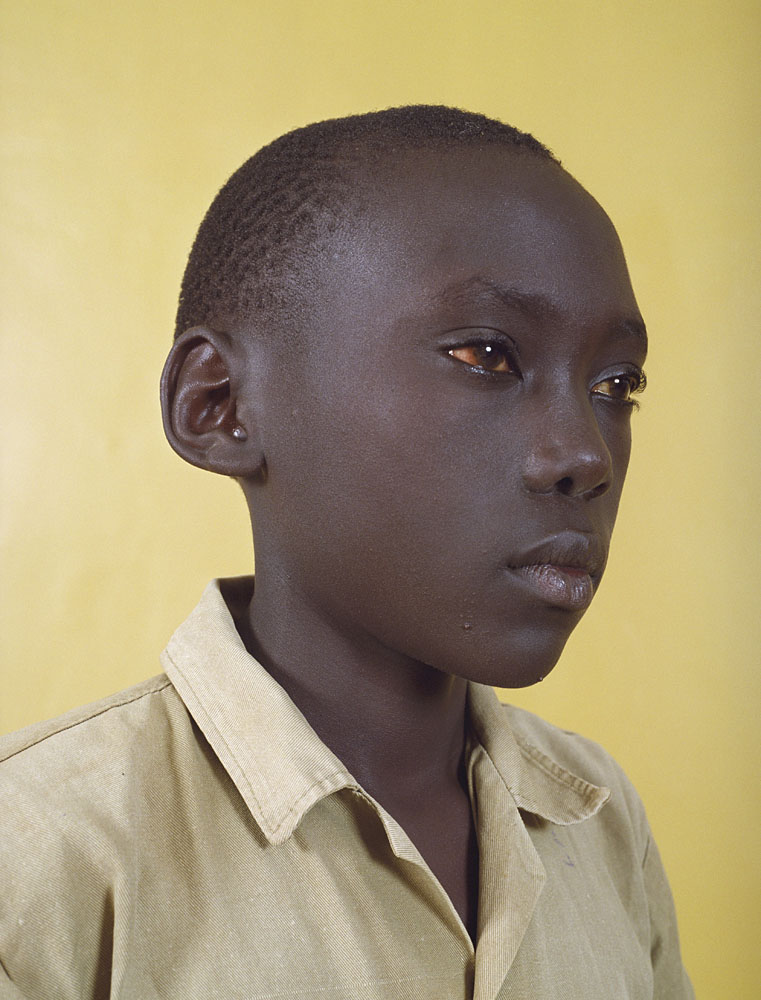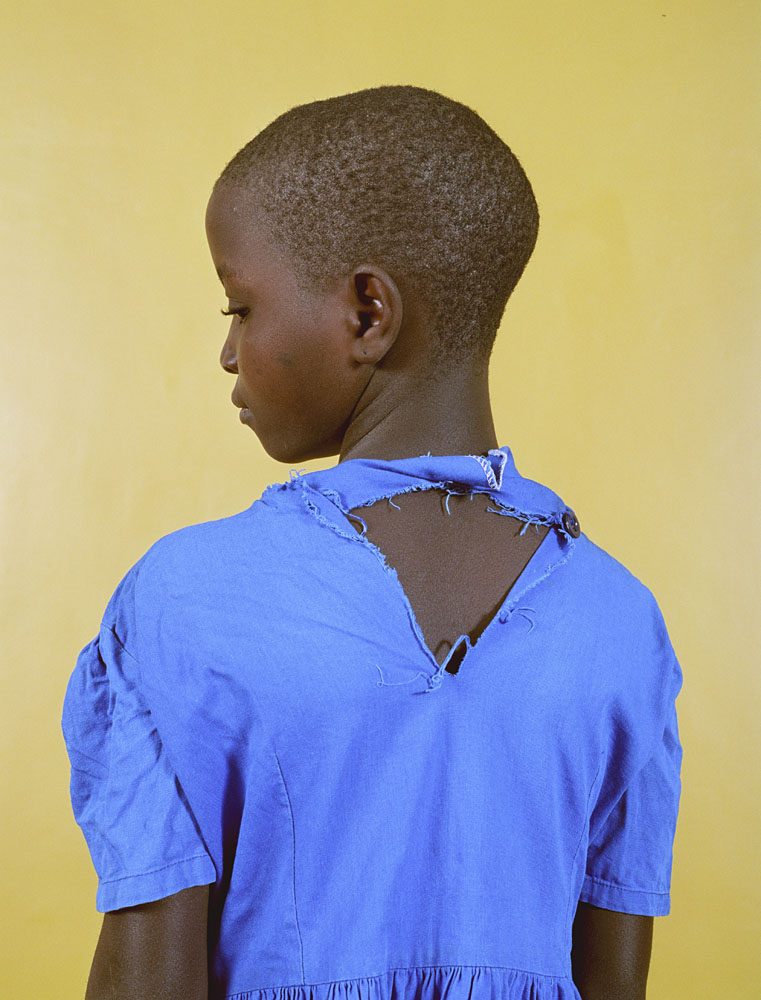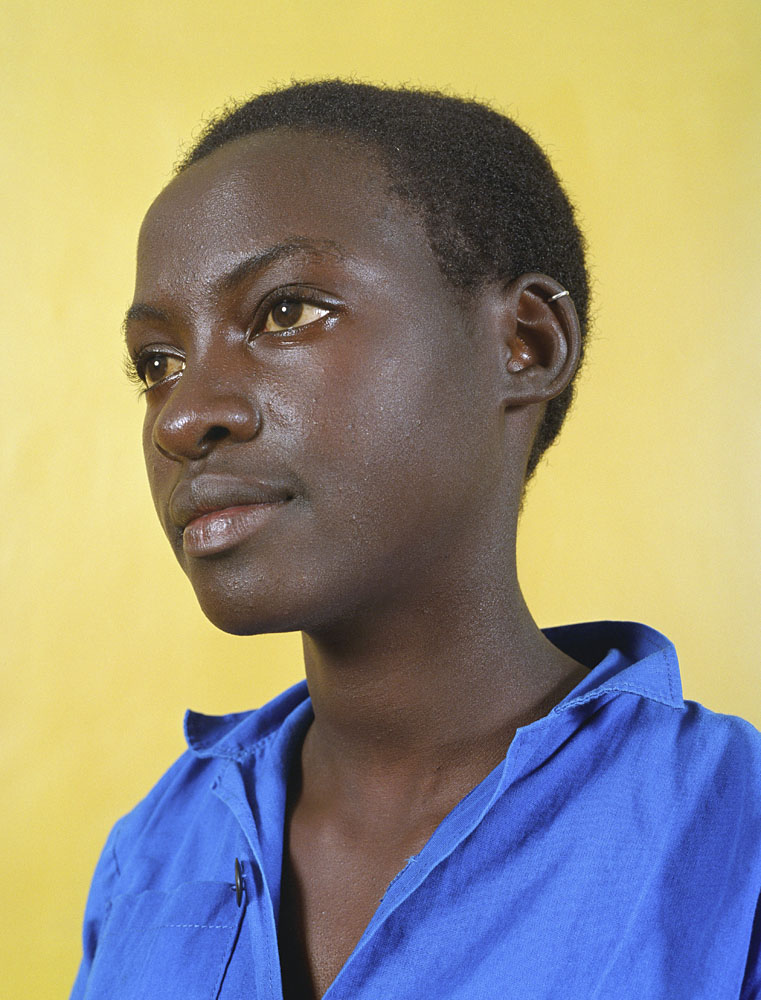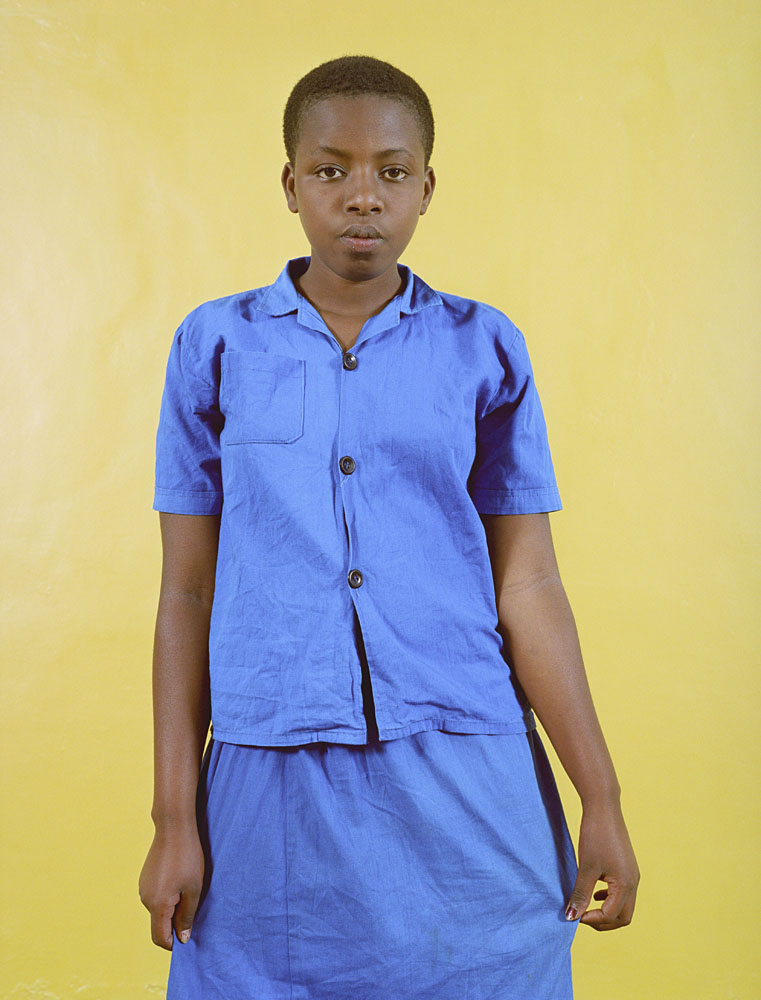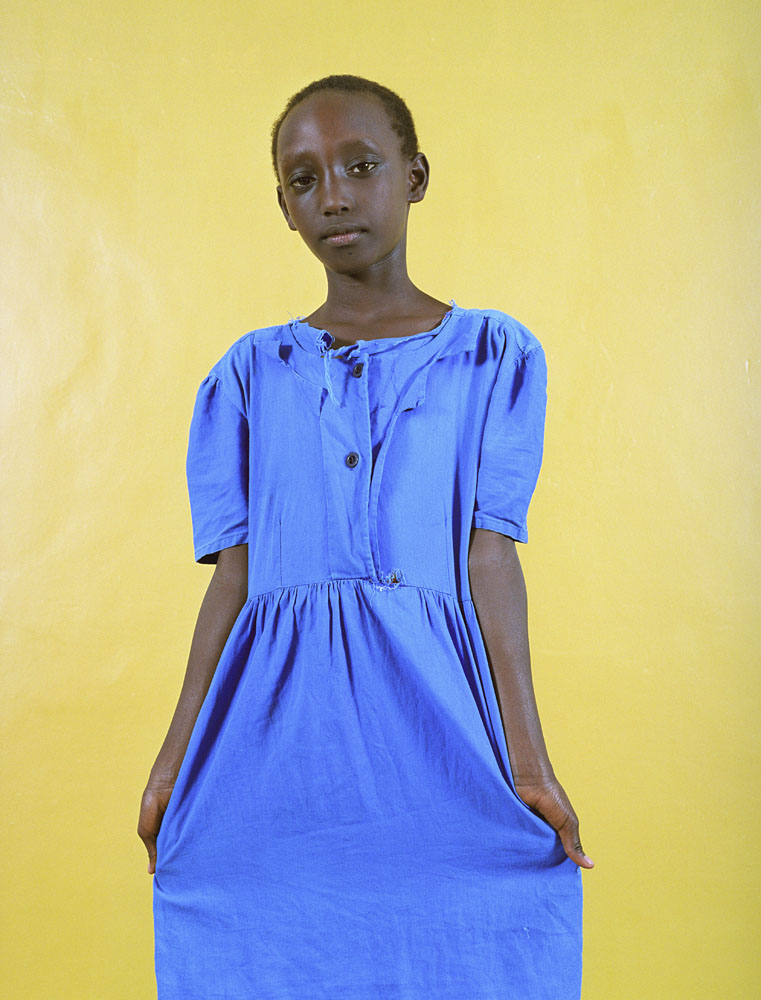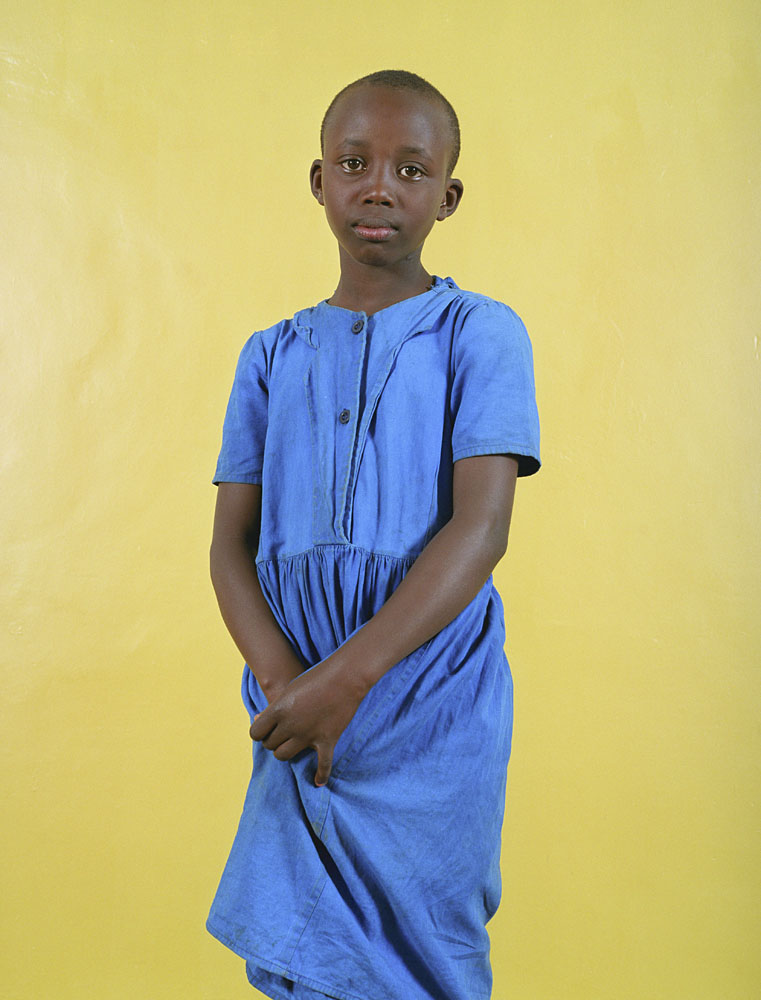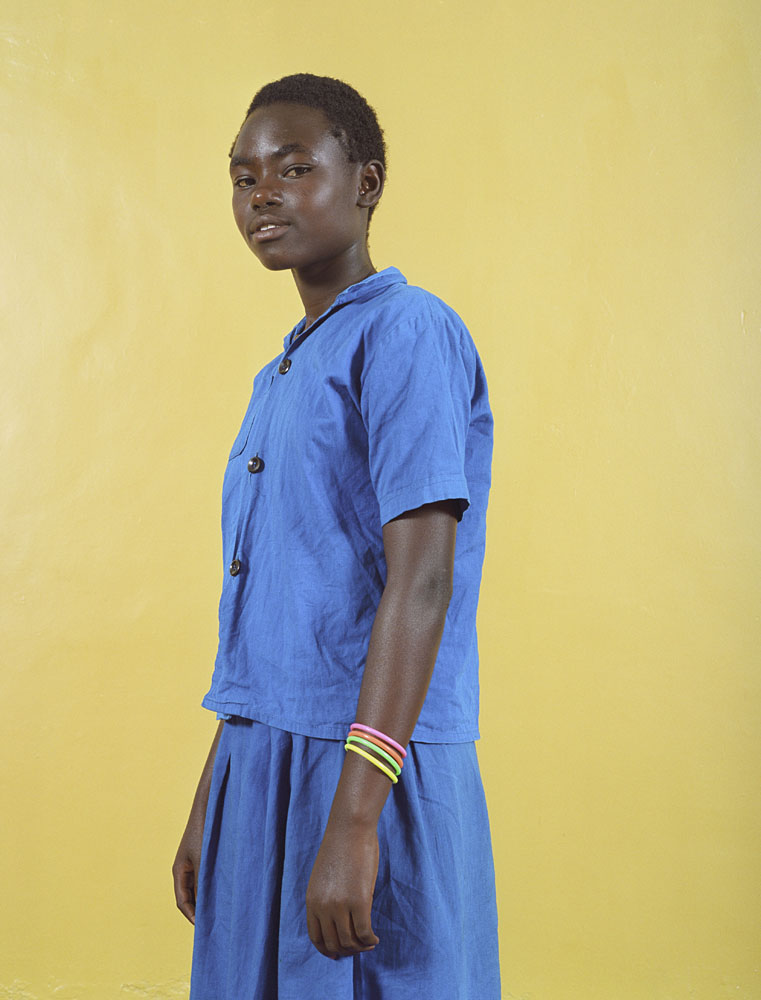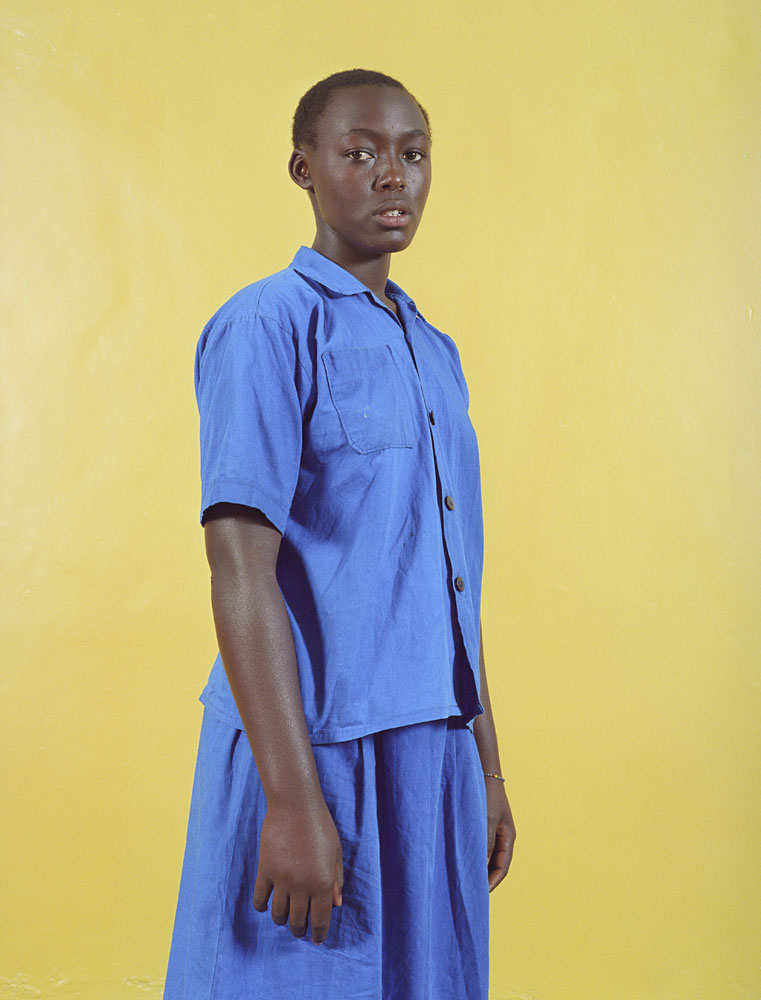Charles Fréger went to Kigali to respond to a commission from the NGO Right to Play, a British organization working to restore the taste and practice of play and sport to children in countries in difficulty. He decided to focus his attention on an orphanage in the city. Boys and girls of all ages are present. Most of them are children whose parents died during the genocide committed by the Hutus against the Tutsis more than ten years ago, or children, some of them HIV positive, whose parents died of AIDS.
The photographer resumes his protocol but deliberately chooses here to stick to a strict economy of the frame. He forces himself not to leave the orphanage, settles in a room, which he will not leave. The environment is reduced to a wall with sandy yellow tones, nothing to take the eye beyond the subject who is standing in front of him. The room functions like an old-fashioned studio, where the children follow one another: the girls in their blue uniforms, the boys in beige. With a frontal or oblique gaze, a body in profile or from behind, standing or sitting, Charles Fréger gives them complete freedom to evolve in front of him, without any further instructions. Free to clutch his garment in a gesture of modesty and to twist it, free to embrace a comrade who joins the session: everyone is there, present for “his” moment. And the photographer remembers feeling how each of them had seized this time and this space of the portrait as a parenthesis where introspection was allowed.
